Pre-Modern Chess
The World
The eight of us go forth, not back, to protect our king from an attack. What are we?
The answer, of course, is pawns on a chessboard.
Chess is an old game, a very old game, and as such its origins are much debated and complex. Some theories propose Pythagoras as the father of chess, or even that Moses introduced it.[1] Both of these theories are on shaky ground; whatever its origins chess did not spring fully formed from the head of Zeus like the goddess Athena and instead evolved from various origins in a more complex history. In the process it has become one of the most influential and long-lived games in the world.
It is generally accepted that chess grew out of chaturanga an Indian game from around the fifth century and evolved over the years. The board was the same as we know it today, made up of sixty-four squares, eight by eight. The pieces in this fifth century version represented an Indian army and the name itself was derived from a Sanskrit word for ‘army’.[2] By the sixth century the game had grown and spread in popularity and was especially enjoyed in Iran among Persian high society. When Arab forces conquered Iran in the seventh century, they became acquainted with chess and in Muslim society it gained a strong and loyal base, despite some attempts to ban the game due to the use of images of humans and animals. As a result, these pieces were sometimes replaced by abstract shapes to avoid the ban.[3]
By the eight century there is evidence of the first chess tournament in the Arab world. At roughly the same time lived a man named Al-Adli who was one of the earliest or indeed the earliest chess master. He wrote a book around the year 840 CE about the game which is now sadly lost but referenced in later manuscripts.
We have images of people playing chess from at least 1143 and the earliest reference to the game in a European text dates from 997. The game was almost certainly brought to Europe through the Iberian invasions. The Libro de los juegos, a thirteenth century Spanish book of games contains 100 chess problems and beautiful manuscript illustrations to accompany them.
Chess problem #35 from the Libro de los juegos. Folio 27 verso. (1284). Bridgeman Art Library v. Corel Corp. Public Domain.
Some of the most famous medieval chess pieces found in Britian are the Lewis Chessmen discovered in 1831, on a beach at Uig, Lewis, Scotland and probably from Norway. Now residing at the National Museum of Scotland and The British Museum. No one is absolutely sure where they are from or how they got to the island. There are nearly enough pieces for four distinct sets (78 known pieces at the BM and NMS), and they do not show signs of use.[4] At the very least their existence points to the widespread interest in chess across medieval Europe.
The 12th-century Lewis chessmen in the collection of the National Museum of Scotland (CC BY-SA 4.0)
Chess became increasingly popular in Europe in the fifteenth and sixteenth centuries, especially in Spain and Italy. One of the great female artists of the Renaissance Sofonisba Anguissola painted a beguiling image of her sisters playing chess in 1555.
Sofonisba Anguissola: The Game of Chess (1555). National Museum in Poznań, Poland. Public Domain.
The game of chess had survived a series of prohibitions and Christian Church sanctions to almost take the shape of the modern game by the Renaissance. In England during the seventeenth century pamphlets were printed explaining strategies and providing the rules for the game of chess, which was at the time often played as a game of speed.
Francis Willughby’s Book of Games – original is in Nottingham Special Collections. New edition printed 2022. Public Domain.
It was in the eighteenth century that chess really took off as a competitive game of strategy and deep thought. Add MS 757356 at the British Museum contains several notes about chess and strategy, amongst other important documents.
Notes about Chess within BL Add MS 75736 (18th century). © British Library
The middle document begins:
The game of Chess is not merely an idle amusement; several very valuable qualities of the mind, useful in the course of human life are to be acquired and strengthened by it; so as to become habits ready on all occasions; for life is a kind of Chess, in which we have often points to gain, and competitions on adversaries to contend with, and in which there is a vast variety of good and ill events, that are in some degree the effects of prudence or of the want of it; by playing at Chess, then, we may learn 1st Foresight, which looks a little into futurity and considers the consequences that may attend an action for it is continually occuring to the player, “if I move this piece what will be the advantage or disadvantage of my new situation? What use can my adversary make of it to annoy me? What other moves can I make to support it and to defend myself from his attacks?
Care and contemplation have become a staple of the game of chess. Of course, its history does not end here but by the end of the eighteenth century the game was largely as we play it today. It is safe to say that chess still holds an important cultural place within societies across the globe as it has done for centuries, with a rich history that explains its longevity.
References and Resources:
The original comprehensive history of Chess is A. A. Macdonell, ‘The Origin and Early History of Chess’, Journal of the Royal Asiatic Society of Great Britain & Ireland, 30 (1898), 117–41.
Henry A. Davidson, A Short History of Chess (2012).
David Shenk, The Immortal Game: A History of Chess Or how 32 Carved Pieces on a Board Illuminated Our Understanding of War, Art, Science, and the Human Brain (2006).
Chess: Origins and Myths, https://www.brown.edu/Departments/Joukowsky_Institute/courses/13things/7295.html#bottomcontrols
[1] Chess: Origins and Myths, https://www.brown.edu/Departments/Joukowsky_Institute/courses/13things/7295.html#bottomcontrols
[2] Henry A. Davidson, A Short History of Chess (2012), 2.
[3] Davidson, A Short History of Chess, 7-8.
[4] The Queen’s Gambit: how the Lewis Chessmen won the world over,
https://www.britishmuseum.org/blog/queens-gambit-how-lewis-chessmen-won-world-over


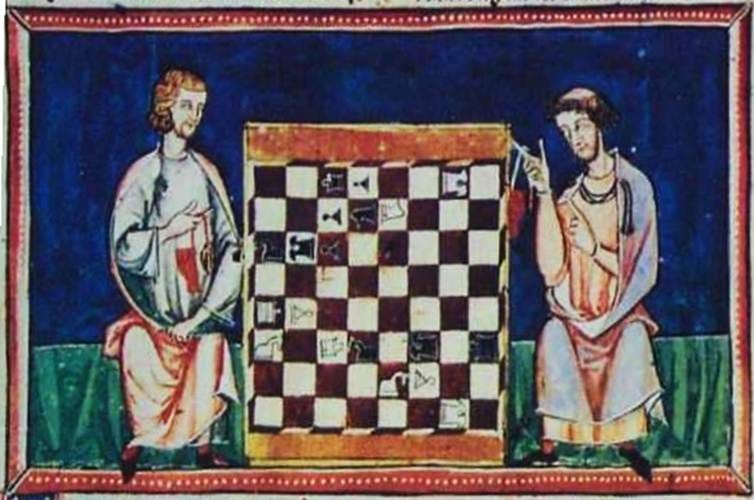
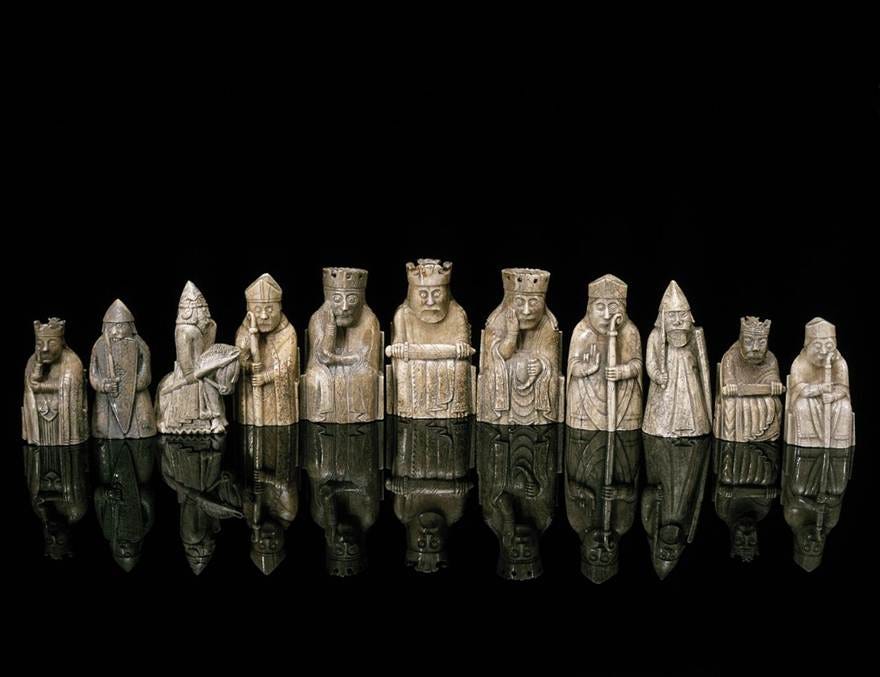
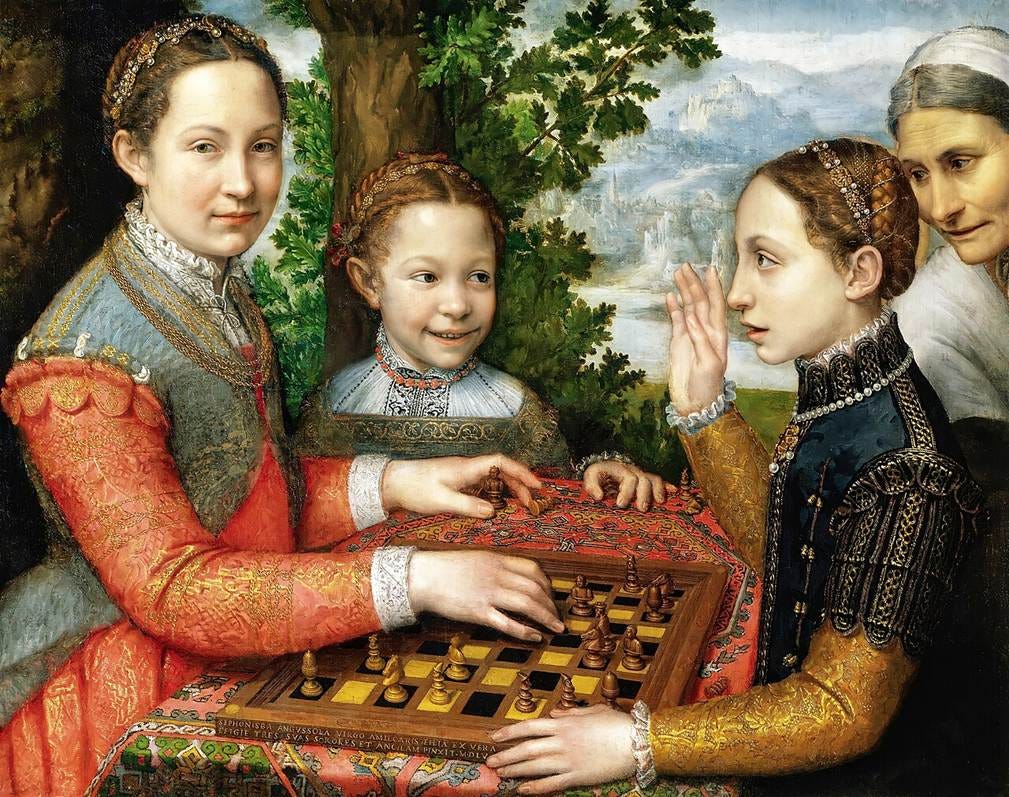
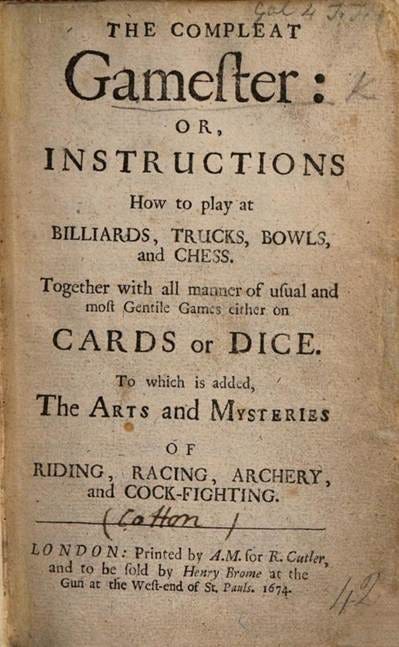
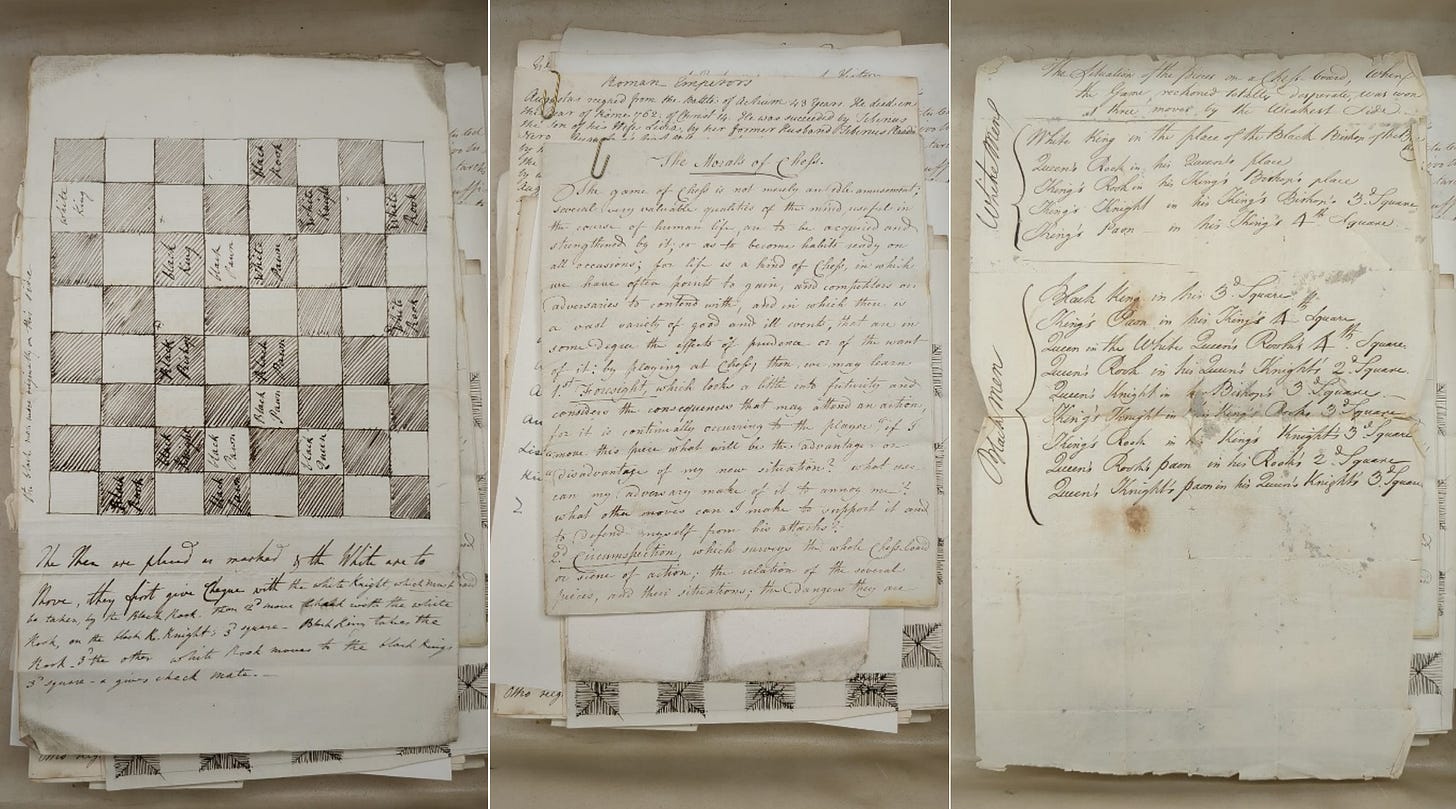

That was so fascinating, Anna, thank you! I have to admit, I was singing "Story of Chess" (from the 80s musical) the entire time I was reading. Do you know this song/musical? (youtube link: https://www.youtube.com/watch?v=4IvuRABJm4U).